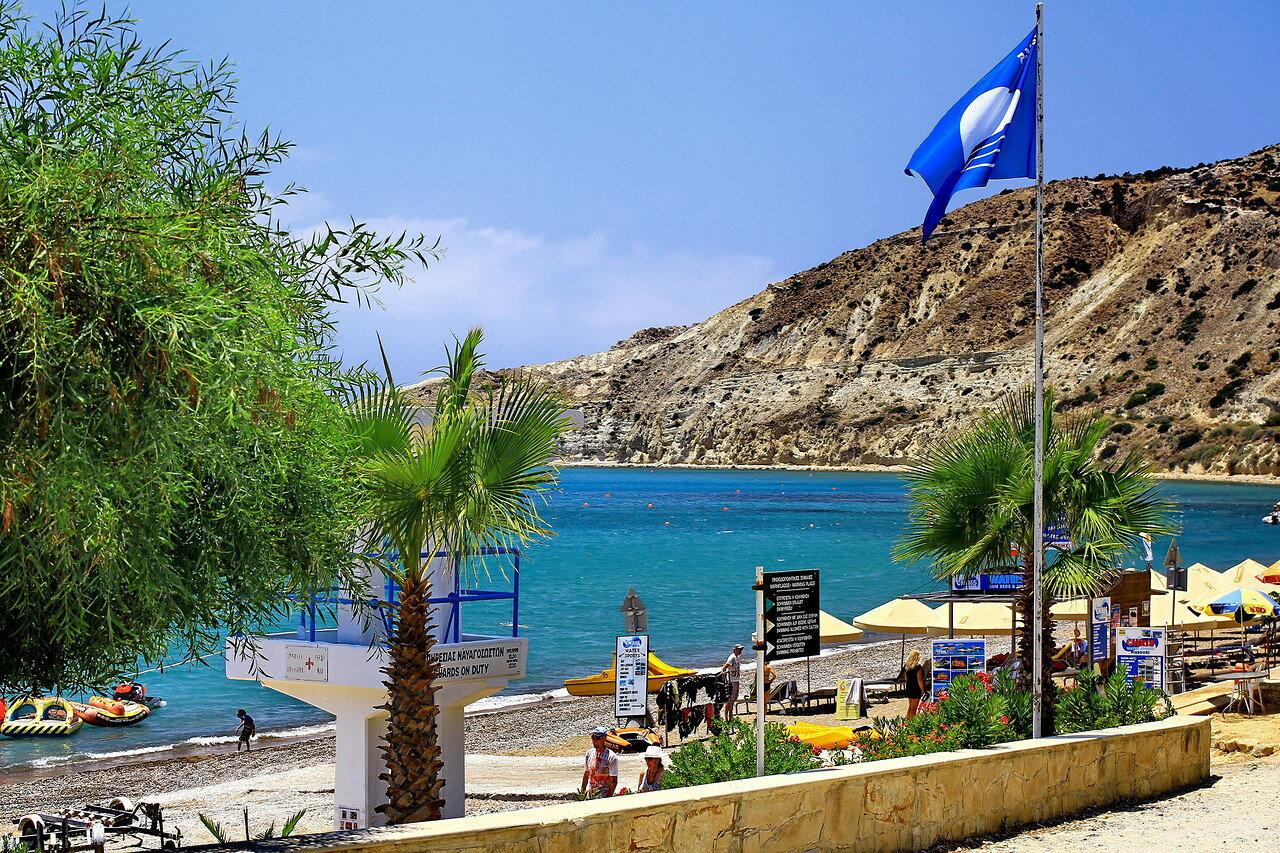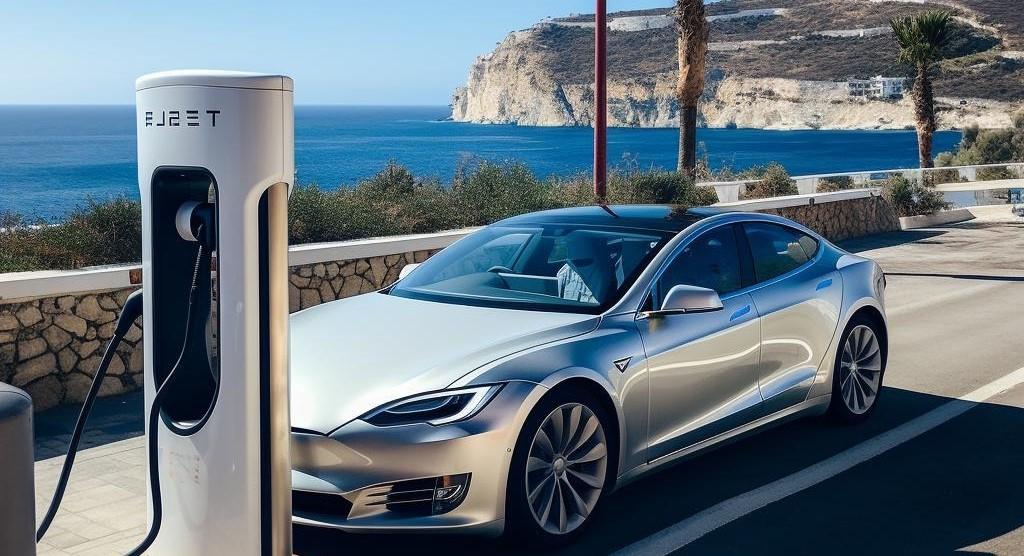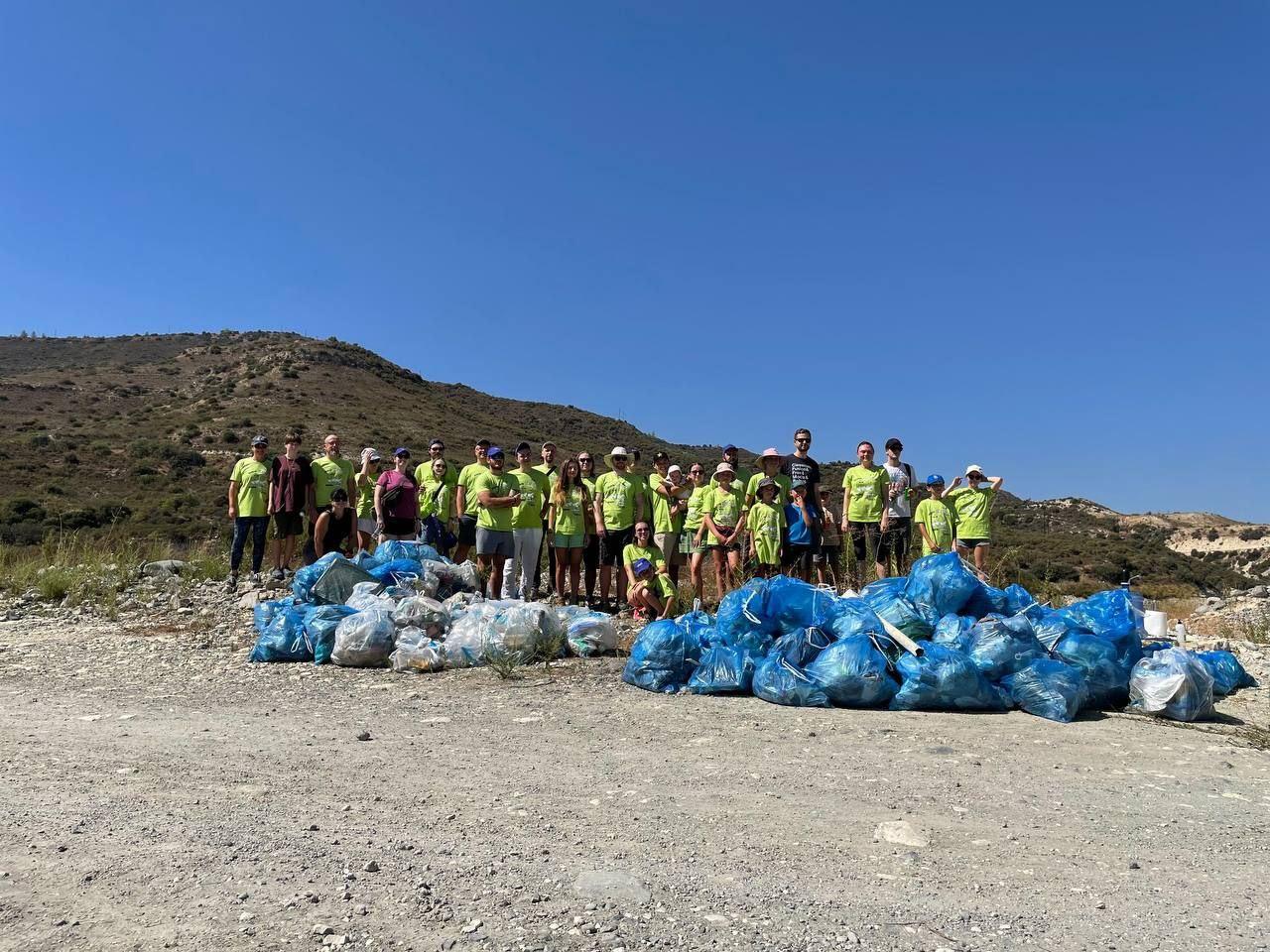Whether you're a seasoned islander or planning to fly to Cyprus, you'll be interested in the current information about ecology in Cyprus and the measures taken to preserve it.
Sunshine
Let's start with the most positive aspect. According to statistics, Cyprus experiences only about 25 cloudy days per year, with the sun shining the rest of the time, providing us with essential vitamin D, which greatly affects our mood and outlook on life. Recently, it was noted that the suicide rate in Cyprus is lower than in the entire European Union. And who can deny that all problems seem less significant when strolling along the beach under the bright sun?
However, along with the vitamins, the native star sends us a dose of radioactive waves. The World Health Organization uses a "UV Index" that assesses the intensity of ultraviolet radiation on a scale from 1 to 11, with higher values indicating more dangerous sun exposure. Cyprus typically scores between 8 and 10. The agency publishes daily forecasts for harmful radiation levels. It is strongly recommended to avoid direct sunlight between 12:00 and 14:00 during the hot months and to protect your skin during sunbathing.
Additionally, Cyprus actively develops projects in the field of green energy to reduce fuel imports and carbon emissions. This includes the construction of solar power plants and the use of solar panels on rooftops. Starting a business for the installation and maintenance of solar panels and wind turbines can be highly profitable in the long run, considering that the local government encourages the use of alternative energy sources, and their availability leaves room for improvement.

Water
The second reason why we call Cyprus a paradise island. Numerous beaches around the island are awarded the "Blue Flag." You can swim and sunbathe here for 9 months a year. Experienced retirees swim year-round and feel fantastic.
The "Blue Flag" is an international award presented annually since 1987 to beaches and marinas with water that meets high quality standards and is safe for swimming. Meeting "Blue Flag" criteria requires strict water quality, safety, and environmental education standards. For locations in EU countries, compliance with adopted directives is also required. In 2023, 77 beaches and marinas in Cyprus received the "Blue Flags."
Food safety and the quality of drinking water in Cyprus are controlled by sanitary inspectors from the medical services and public health services of the Ministry of Health and local authorities. Food products and drinking water are of high quality, completely safe, and do not transmit food or waterborne diseases. Cyprus also has no dangerous infectious diseases, and international travelers do not require vaccination.

Air
One small cement plant, that's all the toxic production in the entire country. Cyprus lacks major industrial facilities that pollute the environment. Additionally, the island adheres to strict environmental standards to ensure clean air and water. Unfortunately, the ideal statistics are marred by dust storms coming from Africa, accounting for about 50% of pollution. By the way, you can monitor air quality using the "Air Quality in Cyprus" app, where data is updated every hour. The website reports when dust concentration in the air increases and provides information on the number of dusty days each year. For example, in 2018, there were 42 dusty days, while in 2022, there were only 16. Overall, the situation varies from year to year. In cases of very high air pollution indexes, it's recommended to stay indoors with closed windows and use air conditioning.
Despite this, Cyprus ranks somewhere in the middle in terms of air pollution by dust particles globally (average of 56 units). For comparison, the most polluted city in the world, Karachi in Pakistan, has an air pollution level of 187 units, Madrid has a level of 61 units, and surprisingly, London has 44 units. Since the Cyprus government is sensitive to factors that could affect the island's appeal to tourism, another package of measures to improve air quality was introduced this year.

Transport
Gradual reduction of harmful emissions from vehicles is one of the main goals of EU policy for the next decade. According to motor vehicle legislation, a car intended solely for personal use can be registered in Cyprus if its age does not exceed five years at the time of import.
In 2015, there were 13 electric cars registered in Cyprus, and now there are several thousand. Owners of eco-friendly vehicles are exempt from certain fees. For instance, owners of electric cars do not pay consumption tax and annual road tax, while owners of hydrogen-powered cars only pay around €60 in road tax. The Ministry of Transport is also focused on expanding the infrastructure for servicing and recharging electric vehicles and plans to allow electric cars to use dedicated lanes to promote this type of transportation.

Fruits and Vegetables, Meat
Cyprus has managed to establish a reliable system for controlling the quality of food products based on EU legislation. Most fruits grow directly on the island and are of excellent quality. First and foremost, there is the incredibly delicious and large strawberries and watermelons with the taste of childhood. The Mediterranean diet is considered one of the healthiest in the world. On the island, you will find high-quality meat products, ranging from chicken fillets to ready-made meatballs, souvlaki, and sheftalia, all homemade.
The Ministry of Health controls all stages of food production and rigorously monitors the quality of imported products. High-quality dairy products deserve special attention. These include Greek yogurts and the branded cheese halloumi, which is produced exclusively in Cyprus. Recently, the production of environmentally friendly food products without the use of pesticides and antibiotics has been actively developing. You can find them in specialized stores. Requirements for imported products can be found on the ministry's website.
Waste Sorting
Cyprus is an island nation, and its primary source of income is tourism. Consequently, the issue of waste recycling and disposal is quite acute in Cyprus. Up to 70% of plastic waste ends up on the beaches. Several recycling plants and facilities for accepting old equipment and cars are open for waste processing. Almost the entire population of Cyprus participates in waste separation. Typically, you can find three different bins at each residential complex: brown for paper and cardboard, blue for plastic bottles, metal cans, and packaging, and a bin for household waste. Cyprus also has many containers where you can place old but still wearable clothing.
By the way, Cyprus frequently hosts various environmental initiatives. For instance, in May 2023, the Cyprus Environmental Fund, in collaboration with Marks & Spencer, carried out an intriguing project. For every pair of DENIM pants purchased in the store, the fund received 2 euros. They collected a total of 3,550 euros. All the money raised in this campaign was allocated for the protection, preservation, and restoration of Cyprus's natural beauty for future generations. Another rapidly growing waste collection company, City Friends Club, often organizes collective plastic clean-ups on the coasts. You can find details and join in on the company's website.

Read also:

